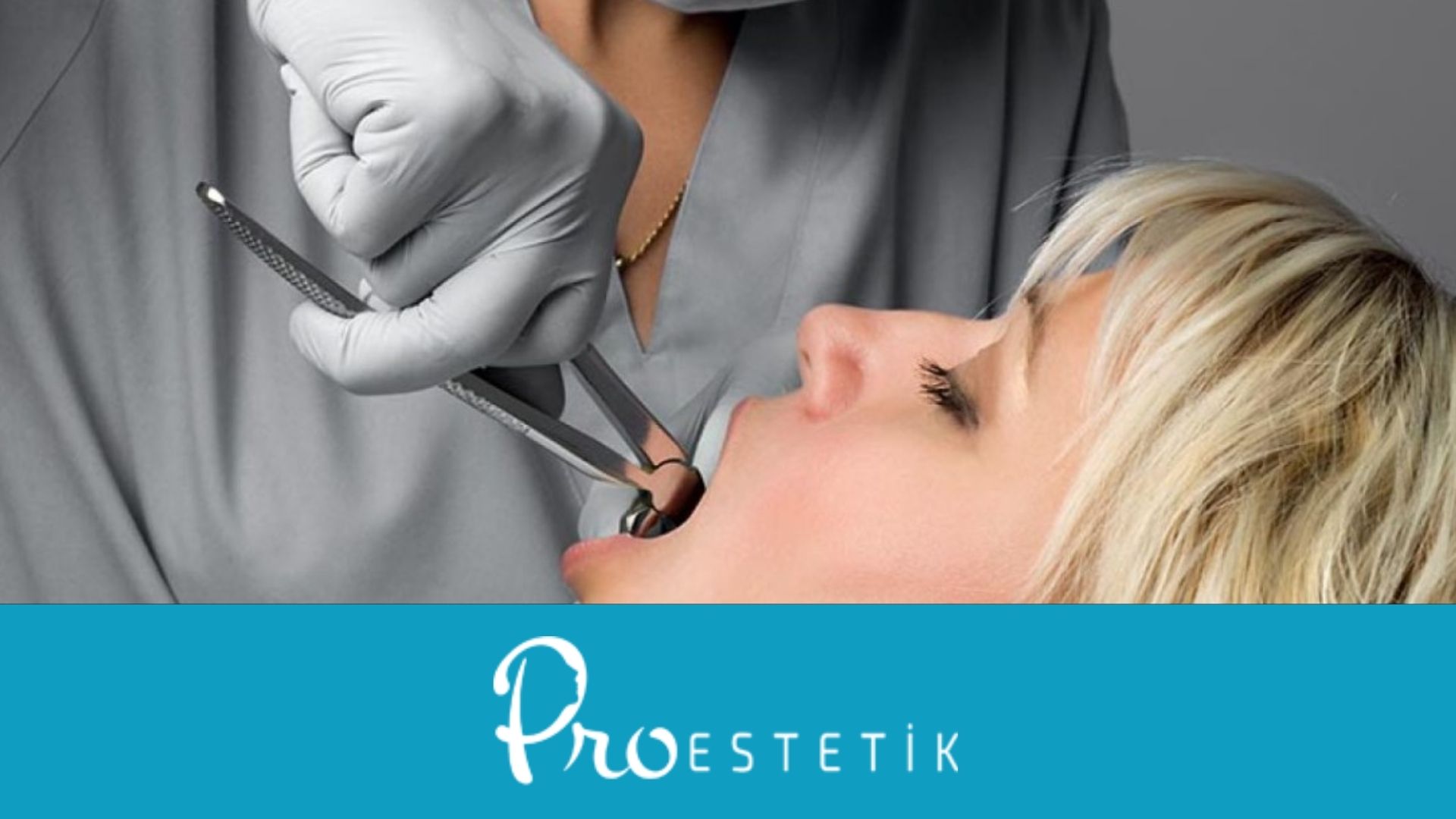What is a tooth abscess? We have compiled all the information about abscess for you... Additionally, what is good for a tooth abscess? We have also covered topics such as prevention methods. What happens if a tooth abscess bursts? You can explore!
An abscess is inflammation that occurs as a result of the body's response to bacteria. Abscesses can occur both inside the mouth and in other parts of the body. If not treated, abscesses that cause redness and swelling can lead to major problems.
Therefore, early diagnosis and starting the most appropriate treatment are crucial. Tooth abscess treatment is carried out under the control of a dentist. You can also apply some methods at home before your treatment process begins if you wish.
What is a Tooth Abscess?

Generally, all abscesses are formed as a result of the body's fight against bacteria. A tooth abscess is the formation of pus resulting from inflammation in tooth tissues. It can occur inside the tooth, in the bone holding the tooth, or around the tooth.
Tooth abscesses mostly form around a broken or decayed tooth. Due to the damage to the tooth, inflammation creates a path from the pulp (the soft tissue at the end of the tooth) and causes the formation of pus. The sensitivity of the tooth area accelerates the formation of an abscess.
Now that we've learned what a tooth abscess is, let's explore why abscesses occur.
Why Does a Tooth Abscess Occur?
Various reasons can lead bacteria to penetrate tooth tissues. Here are some of these reasons:
- Broken, decayed, or hollowed teeth are more vulnerable to bacteria. Therefore, you should start the treatment of such teeth as soon as possible.
- Tooth and gum diseases significantly increase the risk of tooth abscess. Therefore, you should pay attention to your oral health. Get used to brushing your teeth at least twice a day and using dental floss.
- Unhealthy eating habits, such as excessive sugar and fizzy drink consumption, can accelerate abscess formation in the teeth. Such foods can cause tooth decay, increasing the risk of abscess formation.
- Without preventive measures, gum abscess grows rapidly and complicates the treatment process. Therefore, it is beneficial to know the symptoms of an abscess.
Let's continue to explain the topic of what a tooth abscess is...
Symptoms of a Tooth Abscess

What is a tooth abscess, what are its symptoms? Here are the details...
If an abscess has formed in the tooth, the most prominent symptom is pain in the tooth and tooth roots. If not treated, these pains can increase over time. If you have any of the following symptoms, consult your dentist as soon as possible:
- Severe pain in the tooth, gum, ear, jawbone, or neck area
- Redness in the affected area
- Pain during chewing and biting
- Extreme sensitivity to hot and cold
- Fever
- Bad breath inside the mouth
- Difficulty in opening the mouth
- Difficulty in tasting or bad taste
- Swelling in the face and cheek areas
With the bursting of a tooth abscess, a decrease in pain and swelling in the mouth can be observed. In addition, you may experience a bad taste and smell.
Treatment Methods for Tooth Abscess

What is a tooth abscess, and what are the treatment methods? Here are the details...
The treatment of a tooth abscess involves completely draining and cleaning the infected area in a sterile manner. To completely treat the abscess that has formed in the tooth, you should consult a dentist.
Before starting the treatment process, your dentist may request an X-ray from you to better observe the condition of the abscess. This way, it is checked whether the abscess has spread to a larger area.
The dentist decides which method to use to treat the tooth abscess. Various treatment methods can be applied, from root canal treatment to tooth extraction, depending on the type of abscess and the severity of the patient's pain:
- Root Canal Treatment: This method is applied to remove the infected pulp and drain the abscess. The canal is cleaned and shaped, and then it is sealed with canal filling materials. If you take proper care of your tooth after root canal treatment, you can use your tooth for a long time.
- Tooth Extraction: Tooth extraction is the last resort if there is no way to save the tooth. After tooth extraction, the abscess is completely removed.
- Draining the Tooth Abscess: The dentist makes a small incision in the area to drain the abscess. Then, the abscess is drained.
- Antibiotics: The use of antibiotics for a tooth abscess is also among common treatment options. Especially if the abscess has spread to a large area, medication may be started. Your dentist may resort to this treatment method to slow down or alleviate the infection.
Until your treatment begins, you can alleviate your pain with various methods such as gargling with saltwater or applying a cold compress to the affected area.
Now, let's address a different question related to what a tooth abscess is: How can a tooth abscess be prevented?
Preventing Tooth Abscess
To protect yourself from a tooth abscess, there are individual preventive measures you can take. Some of these include:
- Preventing tooth decay
- Practicing regular oral hygiene
- Choosing fluoride toothpaste
- Using dental floss regularly to keep the spaces between your teeth clean
- Changing your toothbrush every three months
- Maintaining a healthy diet, avoiding sugary foods and acidic beverages
- Regularly visiting the dentist for check-ups
Now, let's explore the question: What happens if a tooth abscess bursts?
What Happens if a Tooth Abscess Bursts?
The bursting of a tooth abscess is a situation that can happen to many patients. So, what should you do if a tooth abscess bursts? Consider the following information:
- When a tooth abscess bursts, there is initially a decrease in pain.
- Subsequently, although a bad odor may occur in the mouth, relief will be experienced.
- However, since a tooth abscess is closely related to infection, it should never be burst at home.
- This process must be carried out under the supervision of a dentist.
- Even if tooth abscesses burst spontaneously, treatment will still be necessary. Therefore, you should immediately consult a dentist.
I hope this translation meets your expectations. If you have any further questions or need clarification, feel free to ask.

 English
English Turkish
Turkish Deutsch
Deutsch العربية
العربية![[:en]What is a Tooth Abscess? Diagnosis, Treatment, and Prevention Methods[:tr]Diş Apsesi Nedir? Apse Hakkında Her Şey![:de]Was ist ein Zahnabszess? Wie wird er behandelt? Informationen zum Abszess![:ar]ما هو خراج السن؟ كيف يتم علاجه؟ معلومات حول الخراج![:] diş apnesi](https://proestetik.com.tr/wp-content/uploads/2023/03/dis-apnesi.jpg)










